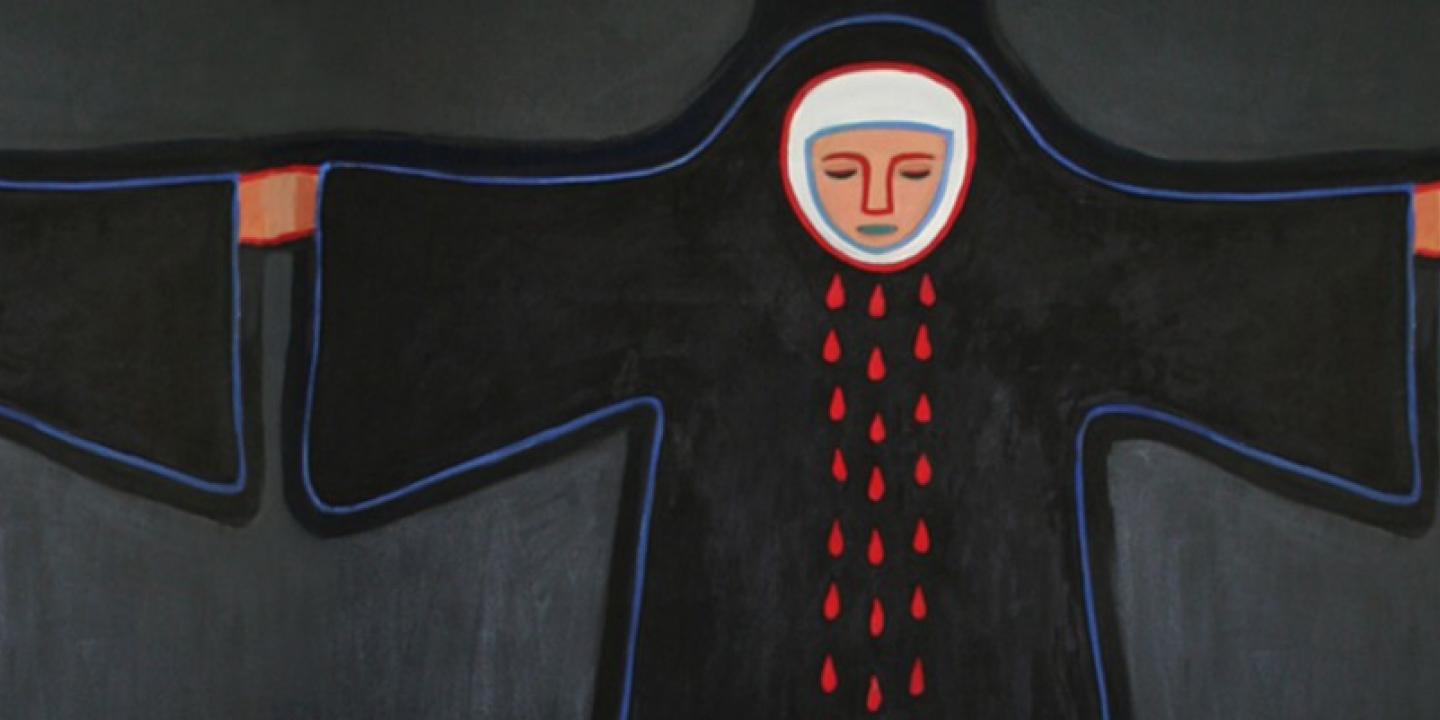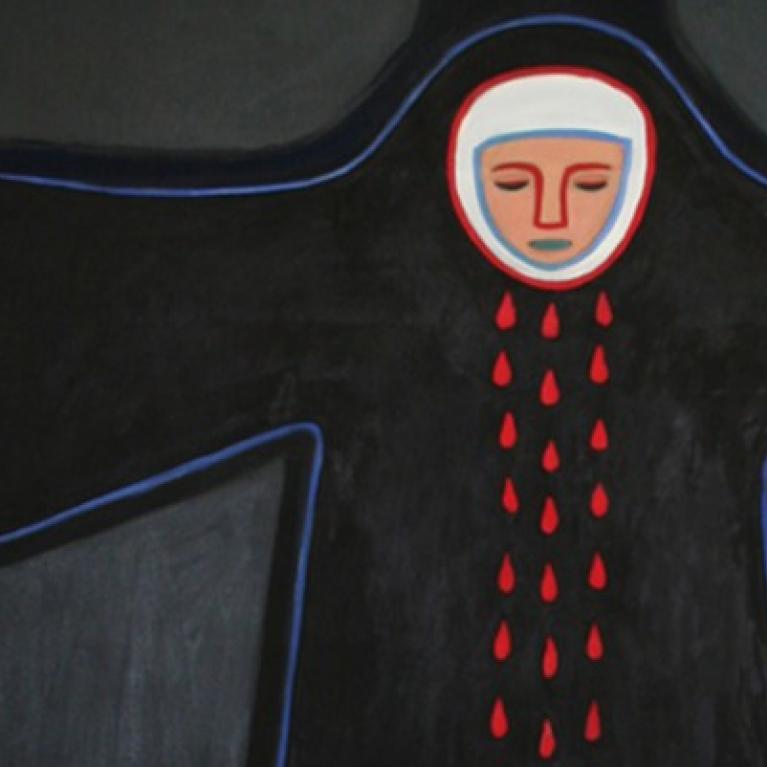You Paint Just Like a Man!
From 4 June to 19 September 2021, an exhibition “You Paint Just Like a Man! The Art of Daina Dagnija in the Context of Feminism” will be presented in the right wing of the 2nd floor of the main building of the Latvian National Museum of Art in Riga (Jaņa Rozentāla laukums 1).
Latvian artist Daina Dagnija spent most of her life in exile – in refugee camps in Germany as well as in the USA. In the latter half of her life, in 2001, she decided to return to Latvia, where she lived and worked until her death in 2019. During these years, the Latvian public got to know and grew fond of her art.
In the title of the exhibition, the sexist statement that occasionally was directed at Daina Dagnija’s art in America: “You paint just like a man!”, aims to provoke a feminist discussion. Reflecting on her life in art, Daina Dagnija always stressed how difficult it was for a woman to be an artist in 1960s-70s America.
Daina Dagnija entered the art scene in the 1960s and took part in her first exhibitions in 1968, a year seething with political activism. This period of global change and series of social revolutions prompted by the civil rights movement, anti-war protests, ecological awakening and the explosion of second wave feminism left a mark on the subjects of Daina Dagnija’s painting. In many interviews the artist has said about her American period: “I painted the society in which I lived.” Nevertheless, in Latvia her art has never been presented in the context of the political and social movements born in the United States in the 1960s-70s.
Daina Dagnija witnessed the huge seismic upheavals when social taboos fell under the sway of counter-culture, when individual freedom and free love, hippies, pacifism and back-to-nature philosophy transformed ideals as well as norms of behaviour. The United States and New York were at the epicentre of protests galvanising society, where Daina Dagnija saw the demonstrations with her own eyes, while personally taking part in the exhibitions and actions organised by the non-governmental Women’s Caucus for Art. At the same time, New York was a mecca of art and culture, where the artist visited concerts and theatres and put her impressions on canvas.
The exhibition presents works from Daina Dagnija’s American period, which were painted from 1968 to 2000 and, alongside works influenced by pacifism and the ecological movement, predominantly include manifestations of second-wave feminism – paintings inspired by the ideas of the civil rights movement, feminism and ecofeminism. The choice of this context for Daina Dagnija’s exhibition is motivated by the current discussions in Latvia about the question of gender studies and social diversity, which is also fairly prominent in art exhibitions. While global feminist chronology already analyses the fourth wave of feminism and Western theory has been describing and discussing all stages of feminism for over a century, much prejudice and confusion remains among the Latvian public. Daina Dagnija’s work provides an opportunity to talk about the history and essence of feminism in a manner accessible to a broad public.
About the artist
Latvian émigré artist Daina Dagnija (1937–2019) left Latvia at the age of seven, in 1944, together with her family, spent seven years in refugee camps in Germany and in 1951 arrived in the USA. She acquired her artistic education in the then-renowned Art Students League in New York (1954–1956), whose former students include many notable American abstract expressionists, as well as the Art School of the Detroit Society of Arts and Crafts (1956–1959) and Chouinard Art Institute in Los Angeles (1960).
Since the mid-60s, Daina Dagnija lived in New Jersey. From 1968 to 2000 she held thirteen solo exhibitions in different galleries in Detroit, New York, San Francisco, New Jersey and Rabat (Morocco). Artist returning to live in Latvia in 2001. In Latvia Daina Dagnija held more than twenty solo exhibitions.
Exhibition curator:
Dr. art. Elita Ansone, Head of Collections and Scientific Research Department ARSENĀLS (2nd Half of the 20th – 21st Century) / Latvian National Museum of Art

